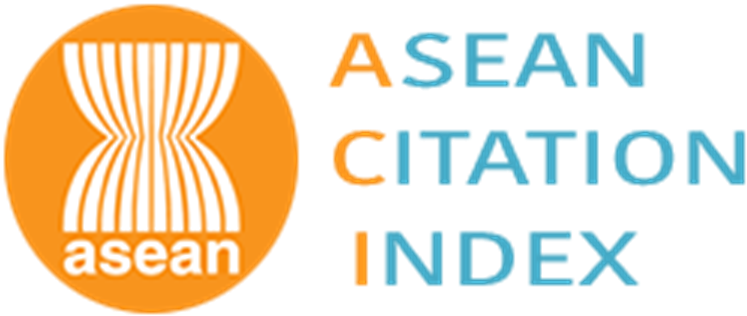รูปแบบการพัฒนาศักยภาพของผู้บริหารในกลุ่มอุตสาหกรรมรับเหมาก่อสร้าง ตามโมเดลประเทศไทย 4.0
The Development Model of the Management’s Potential in Construction Service Industry for Thailand 4.0
Abstract
การวิจัยครั้งนี้มีวัตถุประสงค์เพื่อสร้างรูปแบบและจัดทำคู่มือการใช้รูปแบบการพัฒนาศักยภาพผู้บริหารในกลุ่มอุตสาหกรรมรับเหมาก่อสร้าง ตามโมเดลประเทศไทย 4.0 การดำเนินการวิจัยเป็นแบบผสมผสานทั้งเชิงคุณภาพและเชิงปริมาณ โดยการวิจัยเชิงคุณภาพด้วยการสัมภาษณ์เชิงลึกผู้เชี่ยวชาญจำนวน 14 คน และการสนทนากลุ่มประชาพิเคราะห์เพื่อพิจารณารูปแบบและเนื้อหาในคู่มือโดยผู้ทรงคุณวุฒิจำนวน 15 คน สำหรับการวิจัยเชิงปริมาณโดยผู้บริหารระดับกลางในกลุ่มอุตสาหกรรมรับเหมาก่อสร้างในเขตกรุงเทพและปริมณฑล ทำการตอบแบบสอบถาม จำนวน 438 ตัวอย่าง การวิจัยครั้งนี้ได้ใช้แบบสัมภาษณ์และแบบสอบถาม ด้านสถิติประกอบไปด้วย ความถี่ ร้อยละ ค่าเฉลี่ย ส่วนเบี่ยงเบนมาตรฐานการวิเคราะห์ค่าสัมประสิทธิ์สหสัมพันธ์ของเพียร์สัน และการวิเคราะห์สมการถดถอยพหุคูณแบบเป็นขั้นตอน ผลการวิจัยสรุปได้ว่ารูปแบบการพัฒนาศักยภาพผู้บริหารในกลุ่มอุตสาหกรรมรับเหมาก่อสร้างตามโมเดลประเทศไทย 4.0 ประกอบด้วยองค์ประกอบหลัก 3 ด้าน ได้แก่ 1) องค์ประกอบหลักด้านความรู้ 7 องค์ประกอบย่อย 2) องค์ประกอบหลักด้านทักษะ 4 องค์ประกอบย่อย และ 3) องค์ประกอบหลักด้านคุณลักษณะ 4 องค์ประกอบย่อย สำหรับคู่มือประกอบด้วยแนวปฏิบัติตามองค์ประกอบในแต่ละด้านและตัวชี้วัดความสำเร็จ ผลการประเมินโดยผู้ทรงคุณวุฒิเห็นว่ารูปแบบที่สร้างขึ้นมีความเหมาะสมอยู่ในระดับมากที่สุด (X= 4.87) มีความเป็นไปได้ในการนำไปปรับใช้อยู่ในระดับมากที่สุด (X = 4.89) และคู่มือที่จัดทำขึ้นมีความเหมาะสมอยู่ในระดับมากที่สุด (X = 4.87)
The purposes of this research were to create the development model and develop the manual for the development model of the management’s potential in construction service industry for Thailand 4.0. The selected methodologies of this research were mixing qualitative and quantitative methods. The qualitative researches were conducted with two representative groups: 1) In-depth interviews with 14 professional respondents through purposive sampling technique and 2) Focus group discussion with 15 experts to assess content consistency and evaluate this development model and manual. The quantitative research was conducted by the questionnaire-based survey with 438 respondents, comprising senior executives, project managers, and project engineers working in construction sites located in the Bangkok Metropolitan and suburb area. The instruments used in this study were in-depth interviews and questionnaires. The statistics including frequencies, percentages, means, standard deviations, pearson’s product moment correlation coefficients, and stepwise multiple regression analysis. The results of the development model disclose 3 constituents: Knowledge, consisting of 7 subcomponents; Skills encompassing 4 subcomponents; and Attributes comprising 4 subcomponents. The manual consists of guidelines based on each subcomponent and key success indicators. The results of the professional respondents’ evaluation showed that this development model were appropriate at the highest level (X = 4.87); that the model and can be applied to practice at the highest level (X = 4.89), and respondents agree that this manual were appropriate at the highest level (X = 4.87).
Keywords
DOI: 10.14416/j.kmutnb.2020.02.005
ISSN: 2985-2145





